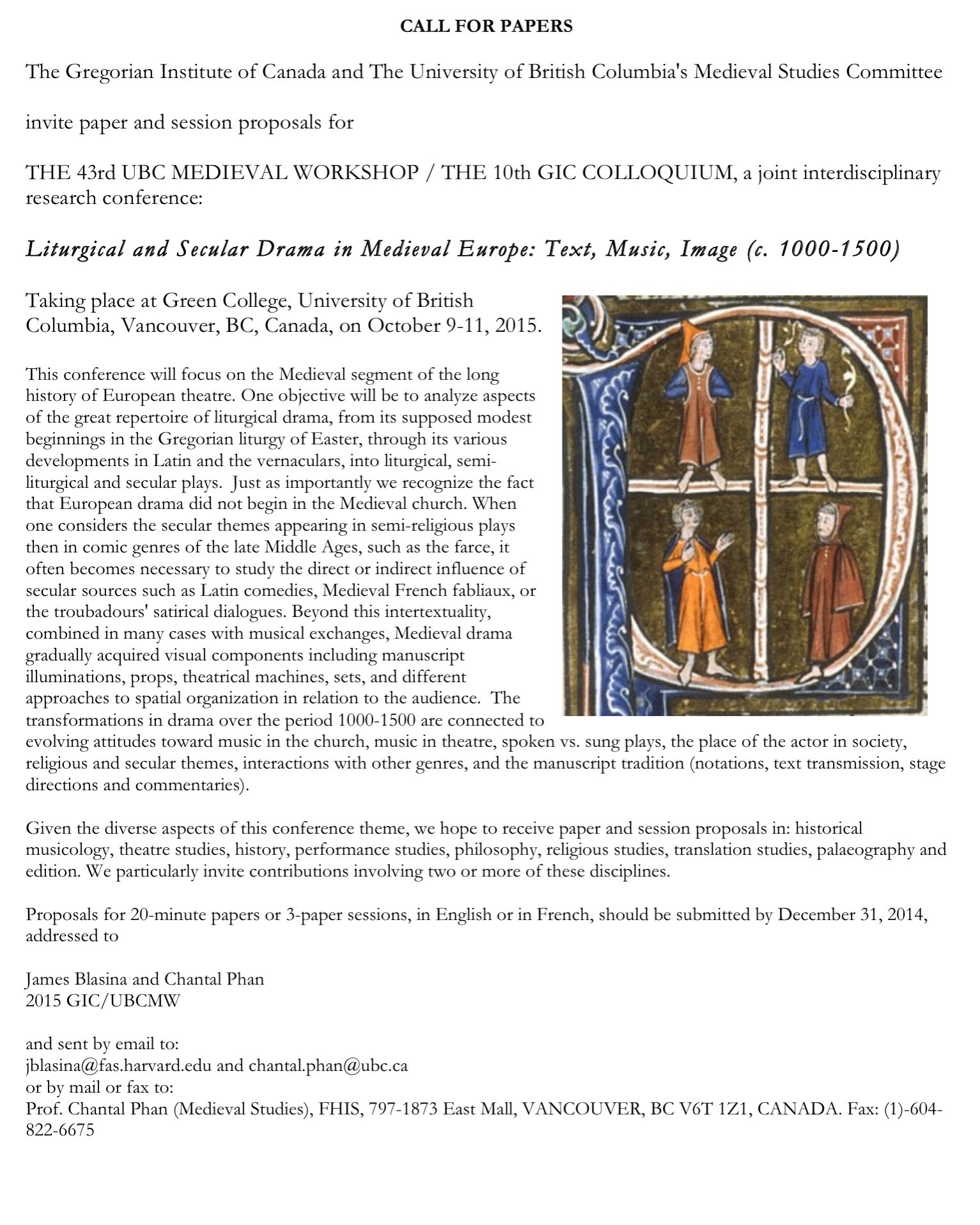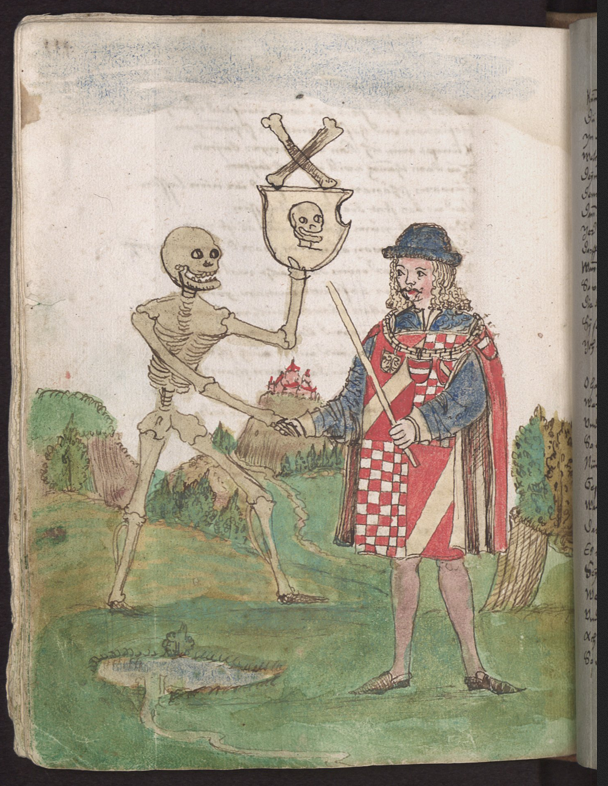DEADLINE: 1 MAY 2015
CALL FOR PAPERS
The Program Committee invites proposals for papers on all topics and in all disciplines and periods of medieval studies. Any member of the Medieval Academy may submit a paper proposal, excepting those who presented papers at the annual meetings of the Medieval Academy in 2014 or 2015; others may submit proposals as well but must become members in order to present papers at the meeting. Special consideration will be given to individuals whose field would not normally involve membership in the Medieval Academy.
Location:
Boston is home to numerous universities, art museums, and performing arts companies. Hosted by several Boston-area institutions, the meeting will convene at the Hyatt, across the street from the renovated Opera House and in the heart of Boston’s theater district. The final reception will be held at the Isabella Stewart Gardner Museum.
Theme(s):
Rather than an overarching theme, the 2016 meeting will provide a variety of thematic connections among sessions. The Medieval Academy welcomes innovative sessions that cross traditional disciplinary boundaries or that use various disciplinary approaches to examine an individual topic. To both facilitate and emphasize interdisciplinarity, the Call for Papers is organized in “threads.” Sessions listed under these threads have been proposed to or by the Program Committee but the list provided below is not meant to be exhaustive or exclusive.
Proposals:
Individuals may propose to offer a paper in one of the sessions below, a full panel of papers and speakers for a listed session, a full panel of papers and speakers for a session they wish to create, or a single paper not designated for a specific session. Sessions usually consist of three 25-minute papers, and proposals should be geared to that length, although the committee is interested in other formats as well (poster sessions, digital experiences, etc). The Program Committee may choose a different format for some sessions after the proposals have been reviewed.
Deadline:
1 May 2015
The complete Call for Papers with additional information, submission procedures, selections guidelines, and organizers is available here:
http://c.ymcdn.com/sites/medievalacademy.site-ym.com/resource/resmgr/pdfs/MAA2016CFP.pdf
Please contact the Program Committee at
MAA2016@TheMedievalAcademy.org
with any questions.
THREADS:
CAROLINGIAN WORLDS
- “Contacts with Islam”
- “Frontiers”
- “Transformations, 877-987”
THE ELEVENTH CENTURY
- “The 1000th Anniversary of Cnut the Great (1016/2016)”
- “Art and Architecture in the Eleventh Century: An Age of Experiments”
- “Creative Liturgies in the Eleventh Century”
MONASTICISMS
- “Monastic Visual Cultures”
- “Monastic Identities”
- “Ascetic Bodies in the Late Middle Ages”
LYRIC TRANSFORMATIONS
- “The ‘Lyric’ Dante”
- “Poetic Form”
- “Petrarch between the Vernacular and Latin”
GREEN WORLDS/MEDIEVAL ECOLOGIES
- “Garden, Park, Wasteland”
- “Material Ecologies”
- “Medieval Anthropocenes”
- “Water Worlds and Seascapes”
- “Mediterranean Landscapes”
WORKS: UNFINISHED, TRANSFORMED OR IN RUINS
- “Unfinished Books, Incomplete Texts”
- “Medieval Art and Architecture as Work(s) in Progress”
- “Ruins”
MEDIEVAL STUDIES AND THE DIGITAL HUMANITIES
Papers are invited for a thread devoted to the exciting new ways in which medieval studies and digital humanities intersect. Topics might include (but are not limited to)
- issues of visualization and the re-presentation of
medieval spaces, - soundscapes,
- the implications of digital archives for the
editing of medieval texts, - the digital (re)construction of medieval collections and libraries,
- GIS and mapping projects,
- social network analysis,
- text encoding,
- and computational approaches to texts and scribal
behaviors.
SESSIONS:
- “800th Anniversary of the Dominican Order”
- “800th Anniversary of Pope Innocent III’s Death”
- “Mortality / Facing Death”
- “Margins of War”
- “Images of Coercion and Dissent”
- “Dangerous, Deviant, and Disobedient Women in the Middle Ages”
- “Vernacular Exegesis”
- “Drama/Performance”
- “Literature of Pastoral Care”
- “Boston Area Medieval Manuscripts”
The Medieval Academy of America | 17 Dunster St., Suite 202 | Cambridge | MA | 02138



